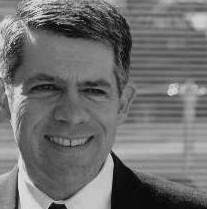A few weeks ago I began a post by one of my favorite countries in the world and where I have many dear friends: Argentina. This is part 2 of 3 posts.
The era of the “Plata Dulce” (sweet money), was also called “Los Anos Locos” (Those Crazy Years). For example, President Juan Peron spent over $600 million to buy the Argentine railroad from the British (it was worth half that). But the money was there, so why manage things too professionally. When economic times started getting tough, Peron instituted several austerity packages, but could never get a handle on his own internal government. He set strict guidelines (most of which made little sense) for the mining industry and agriculture (his money making machines), but spent money on silver bullets that would put Argentina back in the Plata Dulce, such as steel making. He cancelled the Pulqui II program and shut down his nuclear program (which thrilled the U.S.). He slammed the Catholic Church and treated the officer corps, (which was his initial power base, and from whence he came), with distrust and disdain. In 1952 there was a bad harvest and Argentina could not make its balance of payments.
 By 1953 Argentina was in a serious economic crisis. Peron continued to woo those who promised him get well quick ideas. By 1955, Peron was ousted from power. He would come back again in the 1970’s only to institute the same types of policies he had almost 20 years prior. He and later his wife who became President when he died also used soothsayers to make the really important decisions….
By 1953 Argentina was in a serious economic crisis. Peron continued to woo those who promised him get well quick ideas. By 1955, Peron was ousted from power. He would come back again in the 1970’s only to institute the same types of policies he had almost 20 years prior. He and later his wife who became President when he died also used soothsayers to make the really important decisions….
 By 1953 Argentina was in a serious economic crisis. Peron continued to woo those who promised him get well quick ideas. By 1955, Peron was ousted from power. He would come back again in the 1970’s only to institute the same types of policies he had almost 20 years prior. He and later his wife who became President when he died also used soothsayers to make the really important decisions….
By 1953 Argentina was in a serious economic crisis. Peron continued to woo those who promised him get well quick ideas. By 1955, Peron was ousted from power. He would come back again in the 1970’s only to institute the same types of policies he had almost 20 years prior. He and later his wife who became President when he died also used soothsayers to make the really important decisions…. Argentina seems to never fully matured as a country. It is almost as if they made decisions so they wouldn’t have to become a developed nation. It is as if they wanted to stay a “developing nation.” Yet the country’s history since is replete with severe struggles and for the first time since the Spanish floated up the La Plata River people are hungry and frustrated--not with politics (that is a national pastime, but with building their great country). Many of the Buenos Aires middle class have moved to gated communities. Argentina has been blessed with incredible bounty (raw materials, self-sufficient in oil, the best and deepest top soil in the world, brilliant engineers, scientist, writers like Borges, artists like Raul Alonso, musicians like Gardel, agricultural prowess—one of the largest wheat producers in the world, the largest sunflower oil producer in the world, etc.), but they just can’t get their collective act together and build a common identity (except during the World Cup).
So the Pulqui II now sits on a pedestal at the Argentine Air Force Museum. Ahead of its time; a beautiful machine and a point of past pride for a nation that is “the country of the future… and always will be?”
Hmmmm.
Benjamin Franklin in the Art of Virtue suggested, “We stand at the crossroads, each minute, each hour, each day, making choices. We choose the thoughts we allow ourselves to think, the passions we allow ourselves to feel, and the actions we allow ourselves to perform. Each choice is made in the context of whatever value system we’ve selected to govern our lives. In selecting that value system, we are in a very real way, making the most important choice we will ever make.” What are your values? What are your country’s values? Some final thoughts next week.



